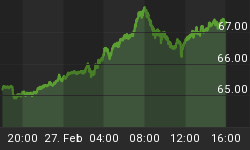Harry Browne, the former Libertarian Party candidate for president, used to say: "the government is great at breaking your leg, handing you a crutch, and saying 'You see, without me you couldn't walk.'" That maxim is clearly illustrated by the financial industry regulatory reforms proposed this week by the Obama Administration.
In seeking to undo the damage inflicted over the past decade by misguided government policies, the new regulatory regime would ensure that the problems underlying our financial system will only get worse. As was the case with the deeply flawed Sarbanes-Oxley legislation of 2002, or the misguided provisions of the Patriot Act of 2001, such as the torturous anti-money laundering requirements, the move will further burden the financial services industry with unnecessary regulation that will drive up costs, lower quality, and shelter the biggest and least innovative companies. Ultimately, the structure will put the entire U.S. financial industry at a global competitive disadvantage.
The underlying problem is that the excessive risk taking which brought about the crisis was not market-driven, but a direct consequence of government interference with risk-inhibiting market forces. Rather than learning from its mistakes and allowing market forces to once again control risks and efficiently allocate resources, the government is merely repeating its mistakes on a grander scale - thereby sowing the seeds for an even greater crisis in the future.
As is typical of government attempts to control economic outcomes, Obama's plans focuses on the symptoms of the disease and not the cause. The American financial system imploded for two reasons: cheap money and moral hazard - both of which were supplied by the government. Under the proposed new regulatory structures, these toxic ingredients will be combined in ever-increasing quantities.
The proposals most notably involve extra regulatory oversight of financial entities that the government deems "too big to fail." This implies that it is desirable to have such entities in the first place, and that the government will continue to back those large organizations that fall under its protection. These "too big to fail" firms will enjoy a competitive advantage over smaller firms in attracting capital, as lenders will perceive zero risk in extending them credit. This will cause these firms to grow even larger, producing even greater systemic risks and larger losses when the next round of bailouts arrives. Meanwhile, smaller firms which seek to expand, and which propose no systemic risks, will face greater challenges as higher capital costs render them less competitive.
If the government did not provide these bailouts or guarantees, then the market itself would ensure organizations did not grow beyond their ability to attract capital. It is only when market discipline is overcome by government guarantees that systemic risks arise.
Obama proposes to entrust the critical job of "systemic risk regulator" to the Federal Reserve, the very organization that has proven most adept at creating systemic risk. This is like making Keith Richards the head of the DEA.
Given the Federal Reserve's disastrous monetary policy over the past decade, any attempt to expand the Fed's role should be vigorously opposed. Through decades of short-sighted interest rate decisions, the Fed has proven time and again that it is only able to close the barn door after the entire herd has escaped. If setting interest rates had been left to the free market, none of the excesses we have seen in the credit market would have been remotely possible.
The perverse result will be that our government and the Fed gain more power as a direct result of their own incompetence. Such was also the case with Freddie and Fannie, which should have been allowed to fail, but were nationalized instead, leaving them in a position to do even more damage. The new round of regulations ignores them completely. Along those lines, ratings agencies such as Standard and Poor's and Moody's that completely missed the mark were also spared. Perhaps this special treatment is a way of ensuring that Treasury debt maintains its bogus AAA rating.
Unfortunately, despite their intent, my guess is that the new regulations will most severely impact smaller firms, like my own, that never engaged in reckless behavior. This will further reward those "too big to fail" firms, whose economies of scale and cozy relationships with regulators leave them better positioned than their smaller rivals to absorb the costs of the added red tape.
With the transition now fully under way, I propose we end the pretense and rename our country: "The United Socialist States of America." In fact, given all the czars already in Washington, we might as well go with the Russian theme completely: appoint a Politburo, move into dilapidated housing blocks, and parade our missiles in the streets. On the bright side, there's always the borscht.
For a more in depth analysis of our financial problems and the inherent dangers they pose for the U.S. economy and U.S. dollar, read my just released book "The Little Book of Bull Moves in Bear Markets." Click here to order your copy now.
For a look back at how I predicted our current problems read my 2007 bestseller "Crash Proof: How to Profit from the Coming Economic Collapse." Click here to order a copy today.
More importantly, don't wait for reality to set in. Protect your wealth and preserve your purchasing power before it's too late. Discover the best way to buy gold at www.goldyoucanfold.com. Download Euro Pacific's free Special Report, "Peter Schiff's Five Favorite Investment Choices for the Next Five Years", at http://www.europac.net/reports.asp. Subscribe to our free, on-line investment newsletter, "The Global Investor" at http://www.europac.net/newsletter/newsletter.asp. And now watch the latest episode of Peter's new video blog, The Schiff Report, at http://www.europac.net/videoblog.asp.















